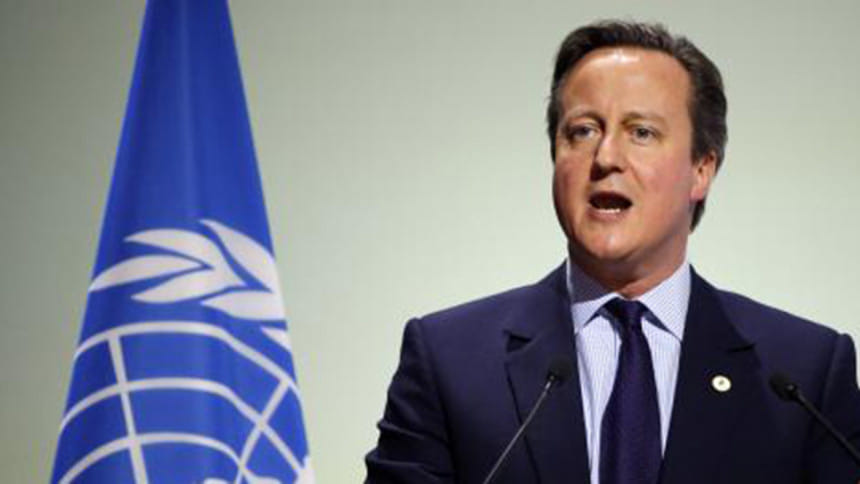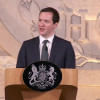UK under fire on climate policy

Allegations of hypocrisy will be levelled at the UK when the Climate Secretary Amber Rudd appears at the Paris climate summit on Monday.
Environmentalists say the UK government is talking impressively on climate change to its international audience, but down-grading energy policy at home.
Ministers say they are still committed to long-term CO2 emissions reductions.
And the Prime Minister David Cameron impressed summit delegates with his passionate call to action.
But in recent months his chancellor has made many policy changes judged likely to increase emissions of greenhouse gases.
Most recently Osborne scrapped a £1bn fund for a demonstration plant to capture CO2 from a power station and store it underground. It was a major pillar of UK climate policy.
Craig Bennett from Friends of the Earth said: "The government is totally hypocritical on climate change.
"George Osborne's anti-environmental policy decisions on energy fly the opposite way to the low-carbon route the vast majority of other countries are pursuing.
"There is a total mismatch between his policies and the warm words of David Cameron. The reality is that on energy policy the chancellor is effectively prime minister already."
Extra costs
There has also been criticism in Paris over the UK's contribution to climate finance for developing countries.
Britain was praised by the UN for doubling its funding to help poor nations get clean technology and to adapt to climate change.
But now the UK is under fire for diverting that climate cash from the regular aid budget.
A spokesman for the Least Developed Countries in Paris told BBC News: "The Copenhagen climate meeting made it clear - climate finance should be new and additional funds, which means it should not come from foreign aid - which is meant for development.
"Think of it like building a road. You use the aid money for the road, but if temperatures rise due to climate change, you will have to thicken the tarmac, which is an extra cost.
"If you build a road which is liable to flood due to rising sea levels, you will need to build in flood protection, which is again additional to development. It's that simple."
Domestic priorities
A spokesman for the energy and climate department, DECC, replied that the UK's climate finance would help poor communities become resilient to climate change and to get clean energy.
She said: "We are committed to getting a global deal in Paris that will help prevent the worst impacts of climate change and grow the low-carbon economy."
The spokesman defended changes to policy priorities in the UK: "Amber Rudd stated the priority is to keep the lights on and bills as low as possible; as well as to reduce the carbon emissions by 80% by 2050."
But is DECC really running energy and climate policy? Sources in the department have told journalists informally that decisions are being driven by the chancellor.
BBC News has contacted the Treasury three times to ask about the chancellor's policies on carbon emissions. We have so far received no reply from Treasury, except for to say that the department does not comment on the chancellor's personal views. This time we asked for these questions to be addressed:
- Does Osborne accept that tackling climate change is urgent?
- Does he accept that his recent policy changes will mostly increase emissions?
- Why did Osborne scrap carbon capture and storage funding - a main pillar of UK climate policy?
- Does the chancellor accept that changing 'Vehicle Excise Duty (VED) is likely to increase emissions as people buy bigger cars?
The questions appear to have been referred to DECC, who said of the scrapping of CCS funding: "Government has not taken this decision lightly. Government was clear that this capital was subject to affordability. This was a tight financial settlement and difficult decisions have had to be made.
"CCS has a potential role in the long-term de-carbonisation of the UK and the government will engage closely with bidders on the implication of this decision for them."
On the question of the change in VED rules leading to increased CO2 emissions, the DECC spokesman re-iterated the Chancellor's statement that VED tax breaks needed to change to ensure cash to fund new roads.

 For all latest news, follow The Daily Star's Google News channel.
For all latest news, follow The Daily Star's Google News channel. 








Comments